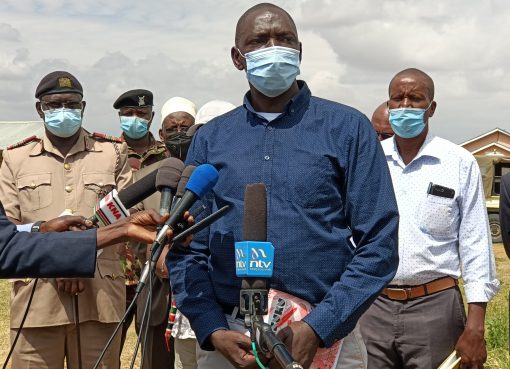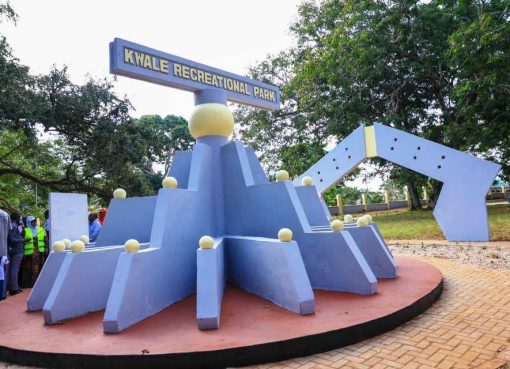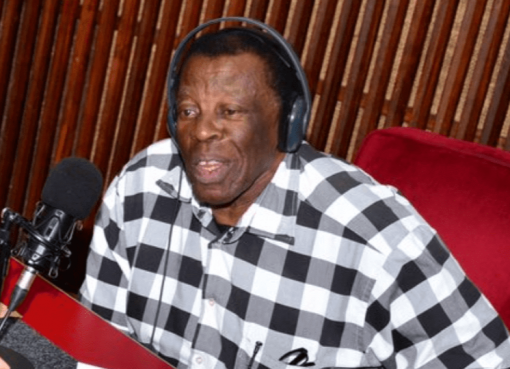Top legal minds from across Africa have converged in Nakuru for the second edition of Kabarak Law School International Conference to deliberate on good governance, human rights and suitable anti-corruption strategies.
The Vice Chancellor, Prof. Henry Kiptiony Kiplangat said the conference themed “Corruption” and being held at the University’s main campus in Nakuru will address threats, challenges, and opportunities for prosecution of corruption in Kenya.
“The conference has brought together scholars, researchers, legal practitioners, judicial officers, civil society groups, policy-makers and analysts from Africa and beyond,” he said.
“Corruption is a complex global problem that undermines democratic institutions, stunts the growth of small businesses, discourages foreign direct investment and generally hampers economic progress,” he added.
“Lawyers are required to understand competing constitutional structures, principles, and limitations if they are to effectively contribute to the fight against graft,” explained the Vice Chancellor.
The week-long forum that has kicked off will evaluate the foundation of individual legal systems and study the competing cultures in the world and how they address challenges posed by corruption.
Dr. Fancy Too, the Dean at Kabarak School of Law indicated that the conference would explore alternative approaches to combating corruption, role of advocates as enablers and fighters of the vice and punishment and remedies in corruption cases.
The dean said that a keynote address on political accountability, public perception and ethnic mobilization and how they impact on the fight against corruption would be delivered.
The conference will also tackle legal and institutional threats that have plagued the devolved system of government in the country.
The organizers of the symposium say since Kenya is almost perfectly between East and West, North and South, which makes for a natural trade and financial hub, legal experts, security analysts and financial advisers have been lined up to make presentations on the link between corruption, money laundering and terrorism.
“Since Kenya has some of the most sophisticated financial infrastructure in Africa, it is one of the most attractive destinations for investment. Nevertheless, this advantage makes the country a prime target for criminals, money launderers and terrorists.
In Kenya, the link between corruption and money laundering is intricate and innate. Money laundering promotes corruption and criminal activities. Accumulation of wealth illegitimately deteriorates a country’s economy.
One of the reasons why Kenya is vulnerable to money laundering is that it is a cash-based economy. This makes it easier to move cash that may be used in funding, planning and execution of heinous act such as terrorism” noted Dr. Too.
Participants will deliberate on how to promote independence of institutions fighting corruption, strengthening of the legal and procedural frameworks for prosecution of corruption cases and asset recovery.
“The war on corruption will only be won if we put in place Institutional independence, inter-dependence and accountability,” he said.
“It is also important that we figure out suitable integration of institutions including the Judiciary, the regulatory agencies, and the ombudsman, public prosecutors, the media, citizen groups and Non-Governmental Organizations to collaborate on the fight against corruption,” said Prof. Kiplangat.
“In a significant number of countries, laws have been enacted against corruption but have not been effectively implemented. In some countries, especially in the developing world, there is near-perfect punishment for corruption offences. The conference will offer collaborative approach bringing together government agencies and different stakeholders in institutional strengthening, a key pillar in the fight against corruption,” observed Prof. Kiplangat.
Dr. Too indicated the Judiciary, Auditor General, National Police Service Commission (NPSC), Ethics and Anti-Corruption Commission (EACC) and Directorate of Public Prosecution (DPP) and Commission on Revenue Allocation (CRA) have also been invited to make expert presentations.
It is envisaged that the forum would improve transparency and accountability in use of public resources and build capacity for professionals involved in investigations and prosecution of corruption cases.
The conference is also crafted to provide a medium in networking and mentorship for young professionals in detecting theft of public resources, terrorism funding and related activities.
The symposium will also explore the impact of technology and innovation, national policies, national and global trends in combating corruption.
It will provide a forum for intellectual exchange on opportunities and challenges presented by new legal developments and innovations in combating the vice.
Papers presented at the symposium will be considered for publication in the inaugural 2020 volume of Kabarak Journal of Research and Innovation.
By Anne Mwale




